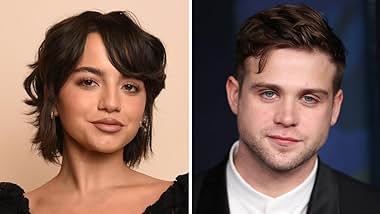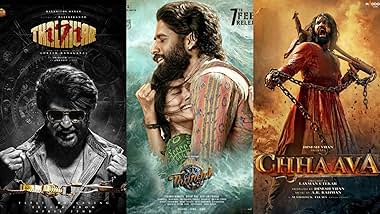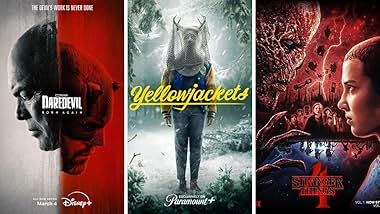- Born
- Died
- Birth nameDennistoun Franklyn John Rose-Price
- Nickname
- Denis Price
- Height6′ 1″ (1.85 m)
- This urbane, sourly handsome British actor was born to privilege and most of his roles would follow suit. Born Dennistoun John Franklyn Rose-Price in Berkshire in 1915, Dennis Price, the son of a brigadier-general, was expected to abide by his family wishes and make a career for himself in the army or the church. Instead he became an actor. First on stage (Oxford University Dramatic Society) where he debuted with John Gielgud in "Richard II" in 1937, he was further promoted in the theatre by Noël Coward.
After brief extra work, Price nabbed early star-making film roles in several overbaked Gainsborough mysteries/melodramas, including A Place of One's Own (1945), The Magic Bow (1946) and Caravan (1946), but the one showcase role that could have led him to Hollywood, that of the title poet in The Bad Lord Byron (1949), proved a critical and commercial failure. He took this particularly hard and fell into severe depression. His fatally charming serial murderer in Kind Hearts and Coronets (1949), in which he does in nearly all of Alec Guinness' eight characters (Guiness plays eight different roles), is arguably his crowning achievement on celluloid.
By the 50s Price was suffering from severe alcoholism, which adversely affected his personal and professional career. A marriage to bit actress Joan Schofield in 1939 ended eleven years later, due to his substance abuse problem and homosexuality, the latter being a source of great internal anguish for him. They had two daughters.
Price became less reliable and fell steeply in his ranking, moving into less quality "B" pictures. Eccentric comedy renewed his fading star a bit in such delightful farces as Private's Progress (1956), I'm All Right Jack (1959) and School for Scoundrels (1960). TV also saved him for a time in the 60s with the successful series The World of Wooster (1965), in which he played the disdainful butler, Jeeves.
Bad times, however, resurfaced. He filed bankruptcy in 1967 and moved to the remote Channel Island of Sark for refuge. Many of his roles were reduced to glorified cameos and the necessity for cash relegated him to appearing in campy "Z" grade cheapfests, many helmed by the infamous writer/director Jesús Franco, a sort of Spanish version of Roger Corman. Vampyros Lesbos (1971) was just one of his dreadful entries. Price also played Dr. Frankenstein for Franco in Dracula, Prisoner of Frankenstein (1972) [Dracula vs. Frankenstein] and the The Erotic Rites of Frankenstein (1973) [The Erotic Rites of Frankenstein]. Fully bloated and in delicate health, he died in 1973 at age 58 in a public ward from liver cirrhosis. A sad ending for one who of Britain's more promising actors and film stars.- IMDb Mini Biography By: Gary Brumburgh / gr-home@pacbell.net - This tall (6' 2"), suave, elegant leading man of the 1940's and later character star of distinction, was born Dennistoun Franklyn John Rose-Price, the son of Brigadier General T. Rose-Price, on 23 June 1915, in Twyford, Berkshire, England. He was educated at Radley, and at Worcester College, Oxford, where he became a member of the OUDS and made his stage debut in 1936. The following year he appeared in the film No Parking (1938) as well as in a number of early BBC television plays, until the outbreak of war in 1939. Also in 1939, he met and married the actress Joan Schofield (also the child of a Brigadier general). They had two daughters, Susan Joan (born 7 July 1940) and Tessa Alexandra (born 30 October 1943).
In 1940, Price joined the Royal Artillery, where he served until being wounded in 1942. His brother Arthur, who had joined the RAF, was shot down and killed in the Battle of Britain. Returning to England in 1942, he resumed his career, touring with Noel Coward in 'This Happy Breed,' and other plays Coward's company produced. In 1943 prominent director Michael Powell saw him in the play 'Springtime for Others' at the Arts Theatre. Powell was so impressed that he cast Price immediately to star in A Canterbury Tale (1944) The film was both critically and financially successful, and Price's career as a leading man was under way.
He appeared with James Mason in A Place of One's Own (1945), which also starred Margaret Lockwood, with whom he had an affair which carried on during subsequent films they made together: Hungry Hill (1947), Bad Sister (1947), and Jassy (1947). Lockwood stated in an interview in 1984 "We were both married with small children, so we decided to call it off."
Price had been making a number of successful films, most of them for Gainsborough, such as Caravan (1946), The Magic Bow (1946), Holiday Camp (1947), (in which he played a murderer), Dear Murderer (1947), Snowbound (1948) and Good-Time Girl (1948), but the one that could have made him an international name, The Bad Lord Byron (1949), was a flop.
He began drinking heavily after this failure, but the following year saw probably his greatest triumph, that of Louis D'Ascoyne Mazzini, who schemes to murder those who stand in line to his becoming the Duke of Chalfont in Ealing Studios' brilliant black comedy, Kind Hearts and Coronets (1949). This was considered Ealing's masterpiece, and, although Alec Guinness is remembered for his eight different characters, it's really Price who dominates the film with his cold, refined, urbane and elegant performance and narration.
In 1950 there was a divorce from Joan Schofield, which sent him into further depression, not helped by his heavy drinking and fondness for gambling. His next film, Fortune in Diamonds (1951), was a very fine film with Jack Hawkins, and was ballyhooed as "the British 'Treasure of the Sierra Madre'!"
Price was still appearing on the stage quite often, and made his U.S. debut in 'Bell, Book and Candle' in 1951. The Intruder (1953) was another good film which reunited him with Jack Hawkins, although by now he was getting somewhat smaller roles and those he starred in were B pictures. Still drinking and depressed, he attempted suicide in 1954 in his Kensington flat in a gas oven; fortunately a servant found him in time.
He resumed his career immediately, appearing in such films as That Lady (1955), with Olivia de Havilland, and Private's Progress (1956), and in 1957 scored a big success while touring South Africa as Major Pollock in the play 'Separate Tables.' He also made a film with his good friend Jack Hawkins that year called She Played with Fire (1957) ('She Played with Fire' in the USA).
By now Price was showing a great flair for character roles, sometimes comedic, and very good films were coming along, including Your Past Is Showing (1957), Breakout (1959), I'm All Right Jack (1959), Tunes of Glory (1960), The Millionairess (1960), School for Scoundrels (1960), Victim (1961), No Love for Johnnie (1961), Call Me Genius (1961), The Cracksman (1963), Tamahine (1963), The Comedy Man (1964), and Ten Little Indians (1965) as alcoholic Dr. Armstrong.
1965 saw Price cast as Jeeves in the television series The World of Wooster (1965) which ran until 1968, and also starred Ian Carmichael as Bertie Wooster. The series, which was a huge success, endeared Price as a new character to a different generation. P.G. Wodehouse, upon seeing it, stated that Dennis Price was "born to play Jeeves", and Wodehouse was pleased no end about the casting.
Unfortunately, Price had two major vices: drinking and gambling, and, in 1967, was in bankruptcy court, where he stated "extravagant living and most inadequate gambling" as the reason he was there. He owed the Inland Revenue some 20,000 pounds, which he eventually paid back, partly by appearing in some quite awful film productions in Spain, mostly directed by Jesus Franco. Price also moved to the Channel Islands in 1967.
Although appearing on television and still in some decent films like The Magic Christian (1969), Pulp (1972), and several Hammer horror films, Price was now being seen in some rubbish which was beneath his talent and dignity. One of his last films was Theater of Blood (1973) with Vincent Price as a mad actor killing off all the critics, played by such stars as Robert Morley, Jack Hawkins, Harry Andrews, and the like. Dennis was very good as critic Hector Snipe, and showed he could still give a good turn.
In October 1973, in his home in the Channel Islands, Price fell and broke his hip; he was taken to hospital in Guernsey where he died on October 6th, from heart failure as a direct result of the hip fracture. There has been a rumor that he died of cirrhosis of the liver, but his death certificate states that is not the case, as no autopsy was performed. His last film, Son of Dracula (1973), was released the following year. He is buried on the Isle of Sark, next to the Dame of Sark.
Dennis Price made nearly 170 film and television appearances, and numerous theatre work, first as a suave leading man, (although he often was either a murderer, or a murder victim!), and later as a character star of great versatility. He once said "I am a second-rate feature actor. I am not a star and never was. I lack the essential spark." Many people would disagree, and it goes to show that one is not always the best judge of one's own talent. In a career spanning nearly forty years, he never seemed to be out of work and was always good value for money. A 1969 TV Times article called him "very nearly Britain's biggest film star."- IMDb Mini Biography By: Scott Palmer/Scott.Palmer2@cox.net
- SpouseJoan Schofield(June 29, 1939 - December 1950) (divorced, 2 children)
- ParentsThomas Rose Caradoc PriceDorothy Price
- Attempted suicide in 1954 by gas in his Kensington flat.
- His brother was Flying Officer Arthur Thomas Rose-Price RAF. He was posted to 501 Hurricane Squadron at Kenley on 9/2/40 at the height of the Battle of Britain. On arrival Rose-Price flew a mission and before he could unpack his kit flew another mission in the afternoon from which he failed to return and was posted missing.
- Invalided out of the Royal Artillery in 1942.
- His army officer father was descended from a Cornish baronet's family.
- He had two daughters with his wife.
- I am a second-rate feature actor. I am not a star and never was. I lack the essential spark.
Contribute to this page
Suggest an edit or add missing content





